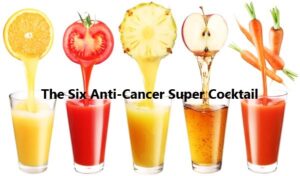
Weight Isn’t The Ultimate Predictor of Early Death
The Ultimate Predictor of Early Death: What Science is Telling Us
In a world obsessed with calorie counts, cholesterol levels, and fitness trackers, we often overlook the most powerful predictor of our health outcomes: our relationships.
Recent scientific findings suggest that loneliness and social isolation may be the ultimate predictors of early death, outranking even obesity, smoking, and excessive alcohol use.
The Hidden Health Crisis
Loneliness isn’t just a fleeting feeling—it’s a serious public health threat. In 2023, the U.S. Surgeon General declared loneliness and isolation a national epidemic, citing research that links social disconnection to a 29% increased risk of heart disease and a 32% higher risk of stroke.
Even more startling: people who are chronically lonely are more likely to die prematurely. Studies show that loneliness can shorten lifespan as much as smoking 15 cigarettes a day. Yes, 15 cigarettes a day.
What Makes Loneliness So Deadly?
Loneliness impacts us biologically, emotionally, and behaviorally:
Biological Impact: Chronic loneliness activates the body’s stress response, increasing cortisol levels and inflammation—both of which contribute to chronic diseases.
Mental Health: Loneliness is strongly associated with depression, anxiety, and cognitive decline.
Behavioral Patterns: Isolated individuals are more likely to engage in harmful habits, like poor eating, lack of exercise, and substance abuse.
The absence of meaningful human connection disrupts sleep, impairs immune function, and accelerates cellular aging.
Beyond the Physical: The Need for Connection
Humans are wired for connection. From the moment we’re born, our survival depends on it. As adults, that wiring remains. In fact, research from Harvard’s 80-year Study of Adult Development—one of the longest-running studies of its kind—found that good relationships are the single strongest predictor of happiness and long life. Not wealth. Not fame. Just love, support, and meaningful connection.
Who’s Most at Risk?
Social isolation can affect anyone, but certain populations are more vulnerable:
Older adults, especially those who’ve lost a spouse or live alone.
Young people, increasingly impacted by digital communication replacing in-person interactions.
Caregivers, who may focus so much on others they neglect their own support systems.
Men, who are statistically less likely to seek emotional support or maintain close friendships.
What Can We Do?
If loneliness is as dangerous as smoking or obesity, then the prescription is clear: we need to invest in connection as we do in diet and exercise.
Here’s how:
Prioritize relationships: Schedule regular time with friends and loved ones.
Join a community: Clubs, faith groups, or volunteer organizations create natural opportunities for bonding.
Limit screen time: Especially social media, which can create an illusion of connection without depth.
Practice vulnerability: Meaningful relationships come from being open and authentic.
A Wake-Up Call
Health isn’t just about eating kale and hitting 10,000 steps a day. It’s about who we laugh with, who checks in on us, and who would notice if we were gone. The ultimate predictor of early death may not be in our blood work—but in our address books, dinner tables, and missed calls.
If we want to live longer, healthier lives, we don’t just need medicine or gyms—we need each other.
SECRETS, TIPS, TRICKS: Anti-Aging, Longevity, Rejuvenation, Age Reversal
😍 Aredconsult Lifestyle => Anti-Aging


